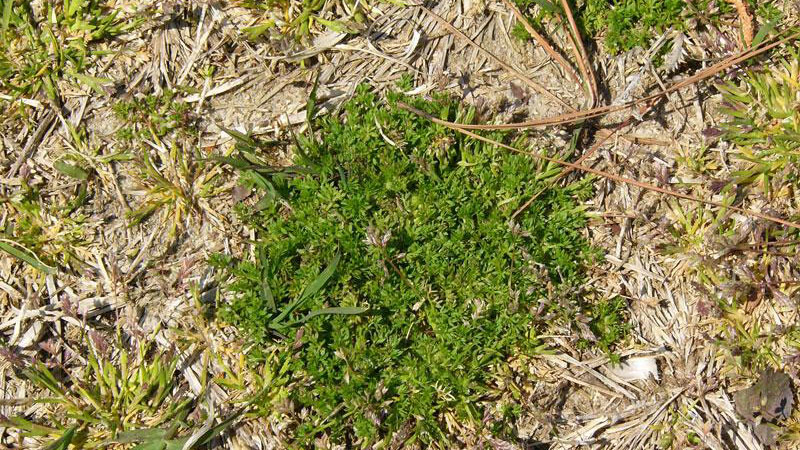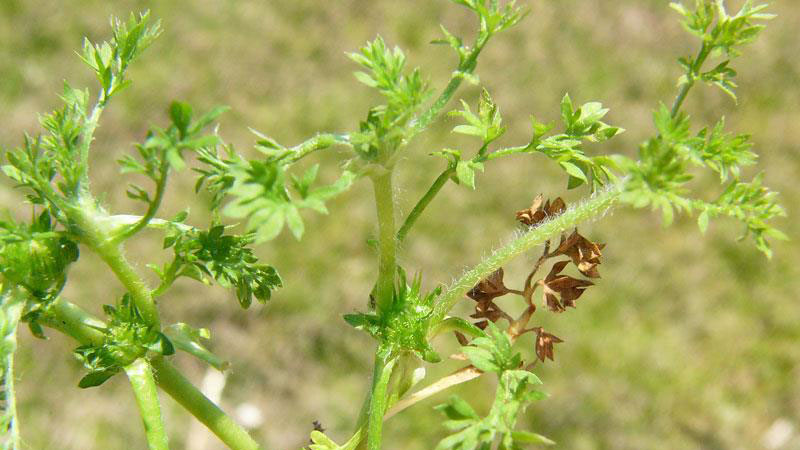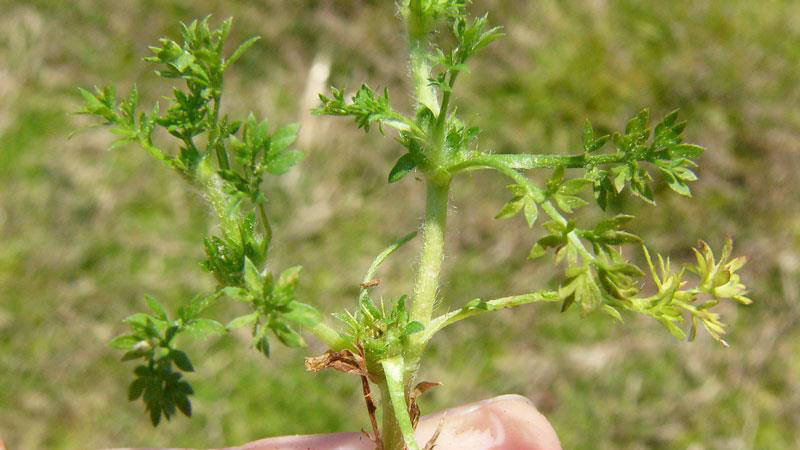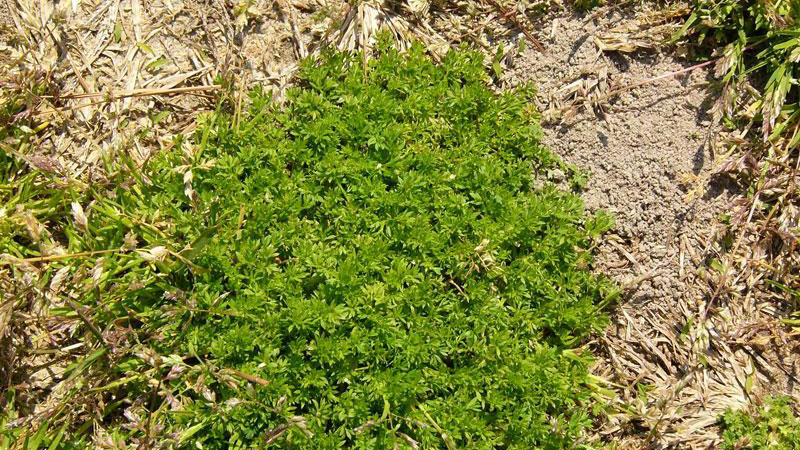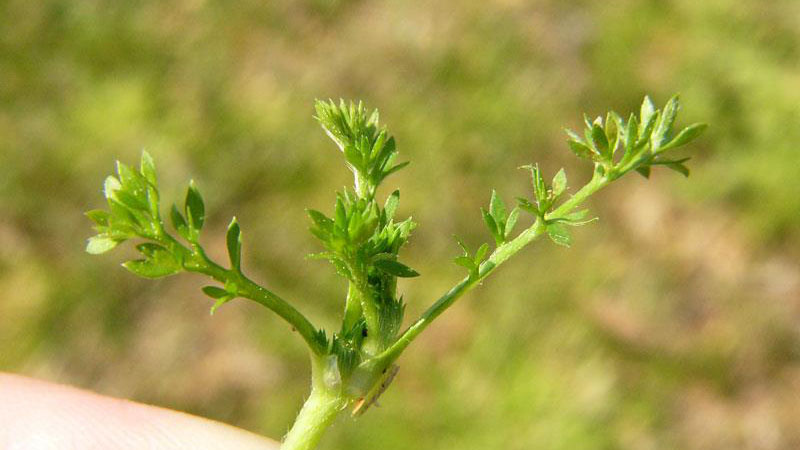Description
Lawn burrweed (Soliva sessilis), also known as spurweed, is a very low-growing winter annual weed that closely resembles parsley-piert and knawel. It is freely branched and usually does not root at the nodes. The leaves are oppositely arranged and highly divided into little leaf segments. Flowers are small (1⁄4 inch or less), broad, and inconspicuous. The seeds have sharp spines, hence the common name. Lawn burrweed is commonly found in turfgrass systems. Infestations are increasing in North Carolina, particularly in the southern Coastal Plain and Piedmont.
Cultural Control
Winter annual broadleaf weeds germinate in the fall or winter and grow during any warm weather, which may occur in the winter, but otherwise remain somewhat dormant during the winter. They resume growth and produce seed in the spring and die as temperatures increase in late spring and early summer. They quickly invade thin turf areas especially where there is good soil moisture. Shade may also encourage growth. Many have a prostrate growth habit and are not affected by mowing. A dense, vigorous turf is the best way to reduce the encroachment of winter annual weeds. First, select adapted turfgrass cultivars for your area and then properly fertilize, mow, and water to encourage dense growth.
Species Data
- GROWTH SEASON / LIFE CYCLE
- winter annual weed
- GROWTH HABIT
- prostrate, spreading
- LEAFLET NUMBER
- one
- LEAF MARGIN
- three-lobed with each lobe again divided into lobes
- LEAF HAIRS
- upper/lower surface; sparsely hairy
- LEAF / LEAFLET SHAPE
- heart/kidney/spade
- LEAF WIDTH
- <1⁄2 inch
- LEAF VENATION
- palmate
- LEAF ARRANGEMENT
- opposite
Figure 5
- opposite
- ROOT TYPE
- fibrous
- FLOWER COLOR
- inconspicuous
Publication date: Nov. 15, 2017
Recommendations for the use of agricultural chemicals are included in this publication as a convenience to the reader. The use of brand names and any mention or listing of commercial products or services in this publication does not imply endorsement by NC State University or N.C. A&T State University nor discrimination against similar products or services not mentioned. Individuals who use agricultural chemicals are responsible for ensuring that the intended use complies with current regulations and conforms to the product label. Be sure to obtain current information about usage regulations and examine a current product label before applying any chemical. For assistance, contact your local N.C. Cooperative Extension county center.
N.C. Cooperative Extension prohibits discrimination and harassment regardless of age, color, disability, family and marital status, gender identity, national origin, political beliefs, race, religion, sex (including pregnancy), sexual orientation and veteran status.

